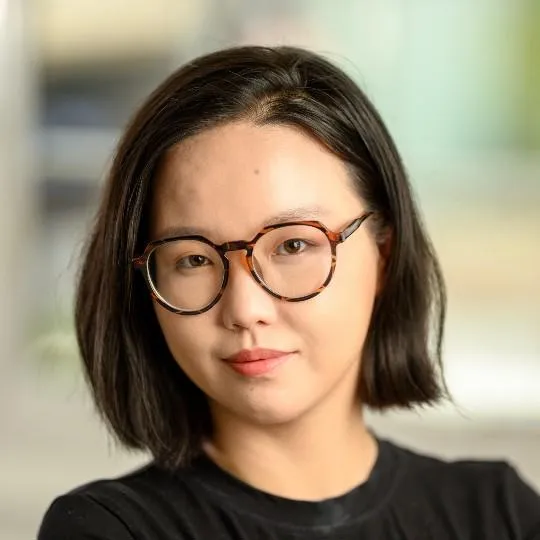
Ye (Catherine) Cao
Graduate Teaching Assistant
Research interests
- Education
Biography
Dr Ye (Catherine) Cao is a committed researcher in science education, education policy and social justice at King's College London's School of Education, Communication & Society.
Catherine completed her doctoral research in August 2024 titled 'Applying Science Capital as the Lens to Understand Chinese Young People's Science Engagement and Aspirations'. She also earned a Master's degree in Engineering in Material Science and Engineering from Boston University and spent two years working in the Chinese education industry.
In addition to her research and teaching, Catherine has worked as a Research Assistant on the project "Sustaining UK teacher quality and retention post-pandemic" and as a peer-reviewer for both BERA and ESERA conferences. Beyond academia, Catherine enjoys a strong online presence as a Key Opinion Leader (KOL) in English academic writing on Xiaohongshu, a popular Chinese social media platform, with over 15k followers.
Research interests
- Science Education
- Educational Policy Gender and SES
- Inequalities in Education
- Mixed-method Research
Teaching
Recent Development of Educational Management Critical Perspectives of Education
Recent Publications
Cao, Y. (2024). Connecting Policy to Education Inequality: Shadow Education, Involution and “Double Reduction” in China. BERA Blog. https://www.bera.ac.uk/blog/chinas-education-crossroads-can-the-double-reduction-policy-resolve-inequalities-caused-by-shadow-education
Cao, Y. (2022). How science capital helps to understand the urban–rural divide in Chinese students’ science aspirations. BERA Blog. https://www.bera.ac.uk/blog/how-science-capital-helps-to-understand-the-urban-rural-divide-in-chinese-students-science-aspirations
Research

Sustaining teacher quality and retention post-pandemic
This project examines the impact of the substantial changes and sustained disruption caused by Covid-19 to the development of secondary school teachers.
Project status: Completed

Centre for Research in Education in Science, Technology, Engineering & Mathematics (CRESTEM)
Centre for Research in Education in Science, Technology, Engineering & Mathematics (CRESTEM)
News
ECS academics and PhD students to share their expertise at the 2023 BERA annual conference
Researchers from across the School of Education, Communication & Society (ECS) will be presenting papers, sharing research findings, and leading symposia and...

Spotlight
Making the STEM sector more equitable
The ASPIRES Research projects, initiated at King’s by Prof Louise Archer, have shown that interventions built on raising interest in science are not enough....

Research

Sustaining teacher quality and retention post-pandemic
This project examines the impact of the substantial changes and sustained disruption caused by Covid-19 to the development of secondary school teachers.
Project status: Completed

Centre for Research in Education in Science, Technology, Engineering & Mathematics (CRESTEM)
Centre for Research in Education in Science, Technology, Engineering & Mathematics (CRESTEM)
News
ECS academics and PhD students to share their expertise at the 2023 BERA annual conference
Researchers from across the School of Education, Communication & Society (ECS) will be presenting papers, sharing research findings, and leading symposia and...

Spotlight
Making the STEM sector more equitable
The ASPIRES Research projects, initiated at King’s by Prof Louise Archer, have shown that interventions built on raising interest in science are not enough....

